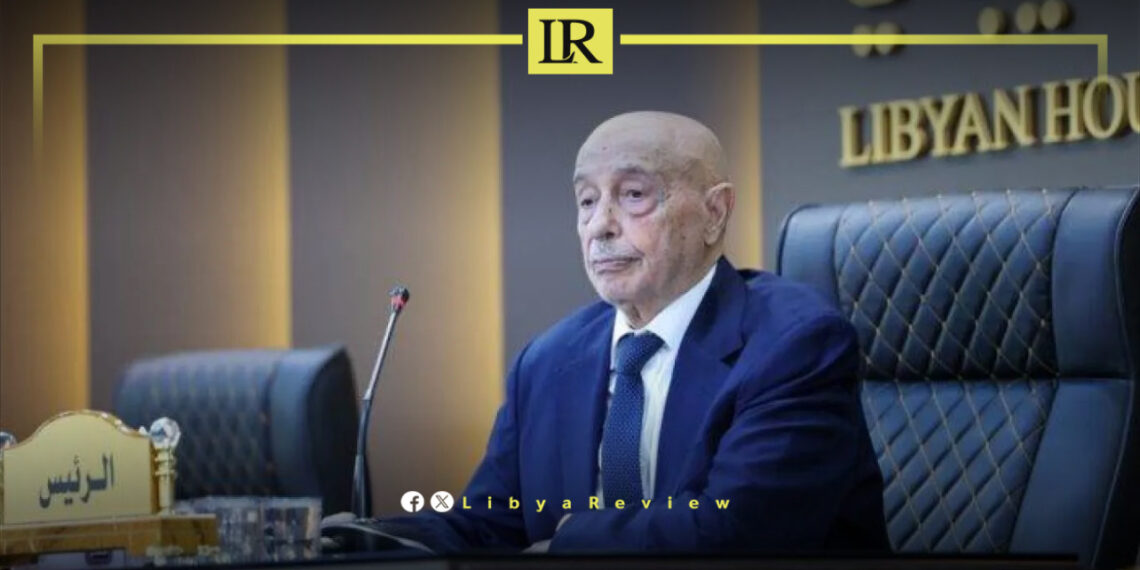Ageela Saleh, Speaker of the House of Representatives (HoR), reiterated the legislative body’s autonomy in determining its agenda and approving laws.
Speaking through the Media Center’s official Facebook page on Saturday, Saleh stated:
“There are two paths for introducing laws in the House of Representatives: through proposals submitted by its members or draft laws presented by the government. Beyond that, the House is not obligated to consider legislation from any other source.”
Last Tuesday, the HoR passed the National Reconciliation Law by a majority vote during a session in Benghazi. This approval followed a detailed review and deliberation of its provisions.
In November, Mohamed al-Menfi, Chairman of the Presidential Council, called on Saleh to pass a reconciliation law submitted by the council in February 2024. Al-Menfi urged that the law be approved without amendments and through a transparent session.
The Presidential Council has been working on a national reconciliation initiative since April 2021. Supported by the African Union and the United Nations Support Mission in Libya (UNSMIL), the council envisions hosting an inclusive conference. However, the project has faced repeated delays due to political disagreements over the conference agenda and the entrenched positions of key stakeholders.
Presidential Council member Abdullah al-Lafi highlighted the inclusiveness of the initiative, emphasizing that “the national reconciliation project is based on bringing all parties together to achieve its noble goals.”
The debate over jurisdiction continues to strain relations between Libya’s HoR and the Presidential Council. Participants in a recent “Forum of Elders, Tribal Leaders, and Wise Men” held in Tripoli emphasized that the Presidential Council is the rightful Commander-in-Chief of the Libyan Army. They argued that reconciliation efforts and election supervision fall under the council’s authority, as outlined in the 2021 Geneva Political Dialogue Forum.
Forum participants also stressed the importance of adhering to Transitional Justice Law No. 29 of 2013, issued by the General National Congress. They called for the activation of the National Reconciliation Commission and the appointment of its members to advance social peace.


